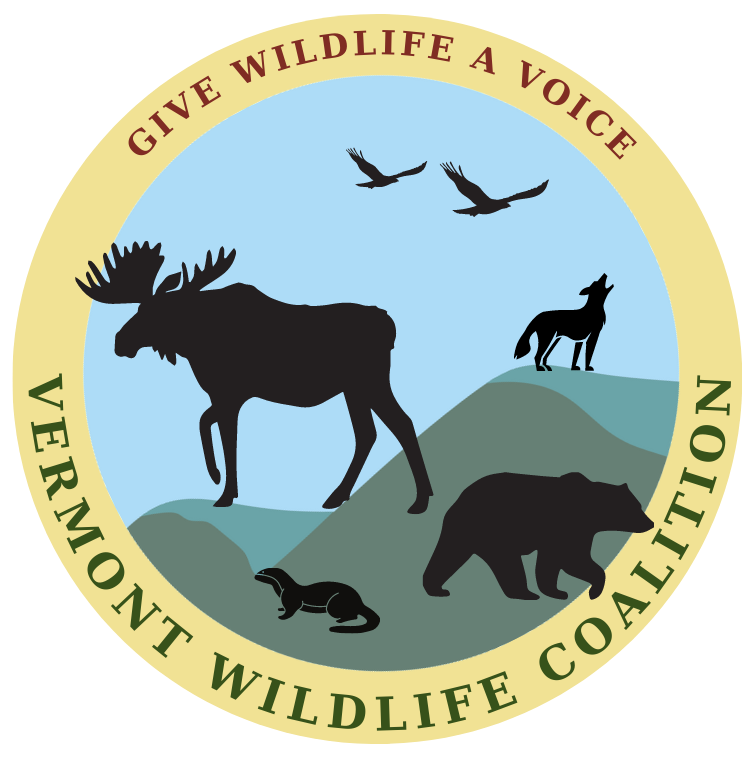Membership is free. As a member, you are entitled to our email updates about legislation impacting wildlife in Vermont, special events, and other updates. If you would like to volunteer, please contact us.
Annual Vermont Wildlife art contest
A painting by Rob Mullen, VWC Board of Directors
The otter painting at the top of the page is also by Rob Mullen. Visit Rob’s website: https://www.paintnpaddlestudio.com to see more of his wildlife art
Recreational trapping: the basics
See our Trapping FAQs for answers to the most common questions. Please contact us if you have a question!
Land traps: Traps on land and on or near trails can be set from the 3rd week of October to December 31st.
Water traps: Traps can be set under water or ice for animals such as beavers, muskrat, and otters from the 3rd weekend of October to March 31st.
Leg-hold/foot-hold or body-crushing “quick” kill traps: Traps can be set anywhere in the State of Vermont on most State and Federal land. Quick is defined as less than 5minutes for 70% of trapped animals, and 30% for an indefinite period of suffering. Kill traps do not kill quickly. WATCH: See for yourself in this brief compilation. The video shows both kinds of traps.
Baited traps: Under Vermont law, baited traps can be set ANYWHERE — there are no hiking trail or other set-backs required.
Non-targeted species: Traps are just as likely to catch a “non-target” animal, including birds and domestic pets. Traps cannot differentiate between a 40lb. dog and a 40lb. coyote, for example. (See story on the left side of this page.)
Location of traps: There does not have to be any notification that traps are set.
Trapping data: Trapping data collected by the F&W Department is self-reported by trappers. (This is a case of the fox guarding the henhouse.)
Important note: Property owners have the right to use traps to protect their property and livestock from predators any time of the year, regardless of trapping seasons. This is not considered “recreational” trapping.
READ MORE about trapping and the experience VWC’s board chair had with trapping in his Vermont town.



